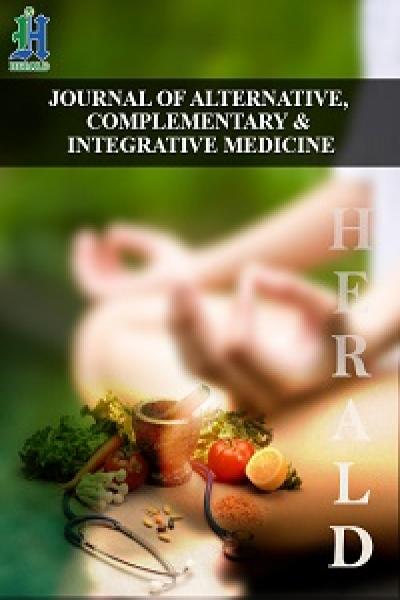
What All Women Need To Know About Alcohol Consumption before and During Pregnancy
*Corresponding Author(s):
Patricia DiazNew Life Centre For Women, Suite 10, Level 8 The Dymocks Building, 428 George St, Sydney, NSW, Australia
Tel:+61 0292231882,
Email:p.diaz@live.com.au
Abstract
We often get asked how much alcohol is really safe to consume whilst pregnant. The answer to this question is zero alcohol!
Ever wanted to know how much Alcohol can impact your future’s baby overall development including its IQ? And how as little as 2 drinks per week during pregnancy and breastfeeding can cause physical and cognitive defects, including poor growth development to your fetus [1,2]?
Keywords
Alcohol Consumption; Alcohol; Breastfeeding
HOW MUCH ALCOHOL CAN YOU REALLY DRINK DURING PREGNANCY? WHAT SORT OF COMPLICATIONS CAN DRINKING CAUSE EVEN BEFORE PREGNANCY?
Ever wanted to know how much Alcohol can impact your future’s baby overall development including its IQ? And how as little as 2 drinks per week during pregnancy and breastfeeding can cause physical and cognitive defects, including poor growth development to your fetus [1,2]?
Consuming an average of more than 3 drinks per day before pregnancy is classified to be binge drinking according to a 2014 study in Denmark, and also further discovered excessive consumptions of alcohol can cause neurological and cognitive development disorders in unborn babies, including short attention span, below average IQ levels, affecting their ability to analyze information and solve problems [3].
Binge drinking is also associated with miscarriage, as a 2014 Danish study found that among women who consumed 4 or more drinks per week, 99 women out of 1932 women suffered miscarriage within the first trimester and a further 51 women suffered miscarriage in their second trimester [4].
WHEN YOU DRINK ALCOHOL, YOUR BABY DRINKS TOO
The placenta is one of the most important organs during pregnancy as it helps maintain the fetus and provides a gateway of nutrition between the mother and the unborn baby. Drinking alcohol during pregnancy can impact the overall development of the placenta and cause fetal growth restriction as well, by:
• Restricting blood flow to the placenta
• Causing blood clots in the placenta
• Reducing oxygen and nutrient supply to the placenta and the fetus
• Increasing placental cell death and decrease in cell growth and [7]
• Potentially lead to pre-eclampsia; a serious condition which is responsible for about 18% of maternal deaths and up to 40% of fetal mortality worldwide [5].
CAN I DRINK WHEN I AM BREASTFEEDING?
CAN DRINKING CAUSE BIRTH DEFECTS?
A study conducted in California found that for every additional drink pregnant women consumed on top of their average alcohol intake of less than 1g of alcohol per day, increased their baby’s risk of being born with [9];
• 25% more likely to have a missing philtrum- a facial deformity where the baby has no groove between the nose and upper lip
• 22% more likely to have an abnormally thin upper lip
• 18% more likely to be small in size at birth
• 16% more likely to weigh less at birth
• 12% more likely to have microcephaly- a birth defect of an abnormally small head associated with incomplete brain development.
FURTHER STUDIES SUGGEST DRINKING AFFECTS MY CHILD’S DEVELOPMENT
ACUPUNCTURE
TAKE HOME MESSAGES SUMMARY
• Acetaldehyde which can cause birth defects
• Ethanol which restricts nutrient supply and decreases fetal growth
Effects of Alcohol:
• Drinking before and during pregnancy can affect your child’s neurodevelopment and impact IQ levels
• Even low level drinking during pregnancy can cause birth defects
• Drinking during pregnancy can decrease birth size and birth weight
• Drinking during pregnancy can cause maternal death and fetal mortality due to pre-eclampsia
• Drinking during breastfeeding affects the development of the child’s poor gross motor skills development and interrupted sleep pattern
WHAT CAN I DO? SUPPORT AND HELP LINES
REFERENCES
- Nykajaer et al. 2014
- Giglia RC, Binns CW (2008) Alcohol pregnancy and breastfeeding a comparison of the 1995 and 2001 National Health Survey data. Breastfeed Rev 16: 17-24.
- Kesmodel US, Kjaersgaard MI, Denny CH, Bertrand J, Skogerbø Å, et al. (2015) The association of pre-pregnancy alcohol drinking with child neuropsychological functioning. BJOG 122: 1728-1738.
- Nilson et al. 2014
- Lui S, Jones RL, Robinson NJ, Greenwood SL, Aplin JD, et al. (2014) Detrimental effects of ethanol and its metabolite, acetaldehyde on first trimester human placental cell turnover and function. PLoS One 9: 87328.
- Bingham RJ (2015) Latest Evidence on Alcohol and Pregnancy. Nurs Womens Health 19: 338-344.
- Lui S, Jones RL, Robinson NJ, Greenwood SL, Aplin JD, et al. (2014) Detrimental effects of ethanol and its metabolite, acetaldehyde on first trimester human placental cell turnover and function. PLoS One 9: 87328.
- Giglia RC, Binns CW, Alfonso HS, Scott JA, Oddy WH (2008) The effect of alcohol intake on breastfeeding duration in Australian women. Acta Paediatr 97: 624-629.
- Feldman HS, Jones KL, Lindsay S, Slymen D, Klonoff-Cohen H, et al. (2012) Prenatal alcohol exposure patterns and alcohol related birth defects and growth deficiencies: a prospective study. Alcohol Clin Exp Res 36: 670-676.
- Srikartika VM, O'Leary CM (2015) Pregnancy outcomes of mothers with an alcohol related diagnosis, a population based cohort study for the period of 1983- 2007. BJOG 122: 795-804.
- Lee JS, Kim SG, Jung TG, Jung WY, Kim SY (2015) (KI9) Acupuncture in reducing alcohol craving in patients with alcohol dependence: a randomised placebo-controlled trial. Chin J Integr Med 21: 307-311.
Citation: Lai M, Diaz P (2019) What All Women Need To Know About Alcohol Consumption before and During Pregnancy. J Altern Complement Integr Med 5: 070.
Copyright: © 2019 Margaret Lai, et al. This is an open-access article distributed under the terms of the Creative Commons Attribution License, which permits unrestricted use, distribution, and reproduction in any medium, provided the original author and source are credited.

